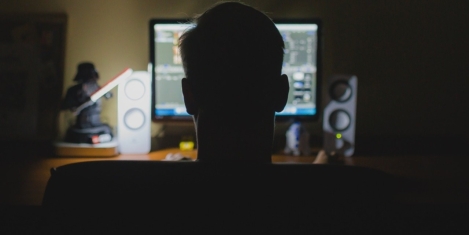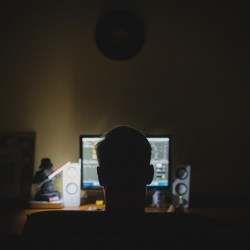April 30, 2021
Search Results for: burnout
April 28, 2021
Employee wellbeing and business results directly linked, research claims
by Jayne Smith • Business, News, Wellbeing
March 29, 2021
Mental health transparency at the top is the key to workplace wellbeing
by Elaine Carnegie • Comment, Wellbeing
 As the world emerges from the grip of the pandemic, the mental health crisis continues to worsen. One thing is for certain as we look to rebuild – the business community must put the mental health of all employees as top priority. But is there something that’s missing in the current conversation around workplace mental health and wellbeing? One thought is around leaders themselves, and that intrinsic connection to their own mental health and wellbeing. What many leaders have been carrying throughout the pandemic is exceptional, including the added weight of responsibility for the wellbeing and mental health of employees and to create mentally healthy workplaces, yet we rarely hear how leaders themselves are coping. More →
As the world emerges from the grip of the pandemic, the mental health crisis continues to worsen. One thing is for certain as we look to rebuild – the business community must put the mental health of all employees as top priority. But is there something that’s missing in the current conversation around workplace mental health and wellbeing? One thought is around leaders themselves, and that intrinsic connection to their own mental health and wellbeing. What many leaders have been carrying throughout the pandemic is exceptional, including the added weight of responsibility for the wellbeing and mental health of employees and to create mentally healthy workplaces, yet we rarely hear how leaders themselves are coping. More →
March 11, 2021
Body language still matters when you are working online
by Agata Nowakowska • Comment, Working culture
 Whether we’re always aware of it or not, body language plays a vital role in face-to-face discourse. In fact, over half of our effective communication comes via body language; that range of non-verbal cues that covers everything from facial expressions and gestures to posture and tone of voice. Meeting in person constantly draws on these signals, and we interpret them by instinct and via conscious analysis to guide the way we interact, frequently to help steer communication towards our goals. But nearly a year of lockdowns, remote working and general separation has challenged these norms, with video-based communication acting as a widespread, imperfect substitute. More →
Whether we’re always aware of it or not, body language plays a vital role in face-to-face discourse. In fact, over half of our effective communication comes via body language; that range of non-verbal cues that covers everything from facial expressions and gestures to posture and tone of voice. Meeting in person constantly draws on these signals, and we interpret them by instinct and via conscious analysis to guide the way we interact, frequently to help steer communication towards our goals. But nearly a year of lockdowns, remote working and general separation has challenged these norms, with video-based communication acting as a widespread, imperfect substitute. More →
February 26, 2021
UK workers put in £24 billion worth of unpaid overtime during the pandemic
by Jayne Smith • News, Working lives
 UK employers claimed £24 billion of free labour last year because of workers doing unpaid overtime, according to new analysis published by the TUC. More than three million people did unpaid overtime in 2020, putting in an average of 7.7 unpaid hours a week. On average, that’s equivalent to £7,300 a year of wages going unpaid for work done. More →
UK employers claimed £24 billion of free labour last year because of workers doing unpaid overtime, according to new analysis published by the TUC. More than three million people did unpaid overtime in 2020, putting in an average of 7.7 unpaid hours a week. On average, that’s equivalent to £7,300 a year of wages going unpaid for work done. More →
February 24, 2021
Half of employees think managers have become less empathetic in latest lockdown
by Jayne Smith • News, Wellbeing, Working lives
 Whilst initial lockdowns saw a positive response from managers looking to support their teams, it seems maintaining this level of empathy a full year later is for some leaders proving unsustainable claims business training course provider, The Hub Events. The survey of 1115 employees who work from home claims that 53 percent felt their manager had become less empathetic during the most recent lockdown. More →
Whilst initial lockdowns saw a positive response from managers looking to support their teams, it seems maintaining this level of empathy a full year later is for some leaders proving unsustainable claims business training course provider, The Hub Events. The survey of 1115 employees who work from home claims that 53 percent felt their manager had become less empathetic during the most recent lockdown. More →
February 19, 2021
Employees are bearing up, but nerves are frayed
by Jayne Smith • News, Wellbeing
 According to new data from Glint, despite the odds, employees were happier at work at the end of 2020 than they were at the end of 2019, but feelings of burnout remain worryingly high. Looking at aggregated data from 9 million employee-engagement survey responses from companies around the world, Glint’s latest analysis claims that employee happiness at work rose 5.4 percent in December 2020, compared to December 2019. More →
According to new data from Glint, despite the odds, employees were happier at work at the end of 2020 than they were at the end of 2019, but feelings of burnout remain worryingly high. Looking at aggregated data from 9 million employee-engagement survey responses from companies around the world, Glint’s latest analysis claims that employee happiness at work rose 5.4 percent in December 2020, compared to December 2019. More →
February 15, 2021
The best places to live for work-life balance
by Jayne Smith • Flexible working, News, Wellbeing, Working lives
 As Brits continue to spend an extensive amount of time at home, the importance of maintaining a good work-life balance has never been so vital. For their 2021 Work-Life Balance Index, money.co.uk have delved through ONS data to uncover where in Britain is best situated for its residents to achieve a good work-life balance. More →
As Brits continue to spend an extensive amount of time at home, the importance of maintaining a good work-life balance has never been so vital. For their 2021 Work-Life Balance Index, money.co.uk have delved through ONS data to uncover where in Britain is best situated for its residents to achieve a good work-life balance. More →
February 10, 2021
Working from home causes people to drift into a ‘cycle of fatigue’
by Jayne Smith • Flexible working, News, Wellbeing
February 3, 2021
COVID-19 is having an unequal impact on the mental health of workers
by Brendan Street • Comment, Wellbeing
 When the COVID-19 crisis hit the UK in March 2020, many commented that the virus didn’t discriminate and that its impact would be felt equally by everyone. However, as highlighted in Nuffield Health’s recent whitepaper, the mental health impact of the virus – rising from financial worries, anxiety around health and the direct impact of COVID-19 – has hit some groups harder than others. More →
When the COVID-19 crisis hit the UK in March 2020, many commented that the virus didn’t discriminate and that its impact would be felt equally by everyone. However, as highlighted in Nuffield Health’s recent whitepaper, the mental health impact of the virus – rising from financial worries, anxiety around health and the direct impact of COVID-19 – has hit some groups harder than others. More →
February 2, 2021
Stress-related absence soars as COVID-19 exacerbates the UK’s mental health crisis
by Jayne Smith • News, Wellbeing, Workplace
 ‘Stress by Sector’ data released by e-days claims concerning statistics that stress-related appointments are up generally in business by 64 percent over 2019. The data claims that the sectors struggling most with stress-related sickness are unsurprisingly healthcare (0.64 days of stress related absence on average per employee), followed by Government and International Affairs (0.57 days on average per employee) and Human Resources and staffing (0.39 days on average per employee). More →
‘Stress by Sector’ data released by e-days claims concerning statistics that stress-related appointments are up generally in business by 64 percent over 2019. The data claims that the sectors struggling most with stress-related sickness are unsurprisingly healthcare (0.64 days of stress related absence on average per employee), followed by Government and International Affairs (0.57 days on average per employee) and Human Resources and staffing (0.39 days on average per employee). More →







 A survey released by
A survey released by 






 Working from home is exacerbating an ‘always on’ culture. Data from a study of UK employees, conducted by virtual team building company
Working from home is exacerbating an ‘always on’ culture. Data from a study of UK employees, conducted by virtual team building company 











April 13, 2021
After a year of lockdowns, people are burnt-out but happier
by Steven Buck • Comment, Wellbeing